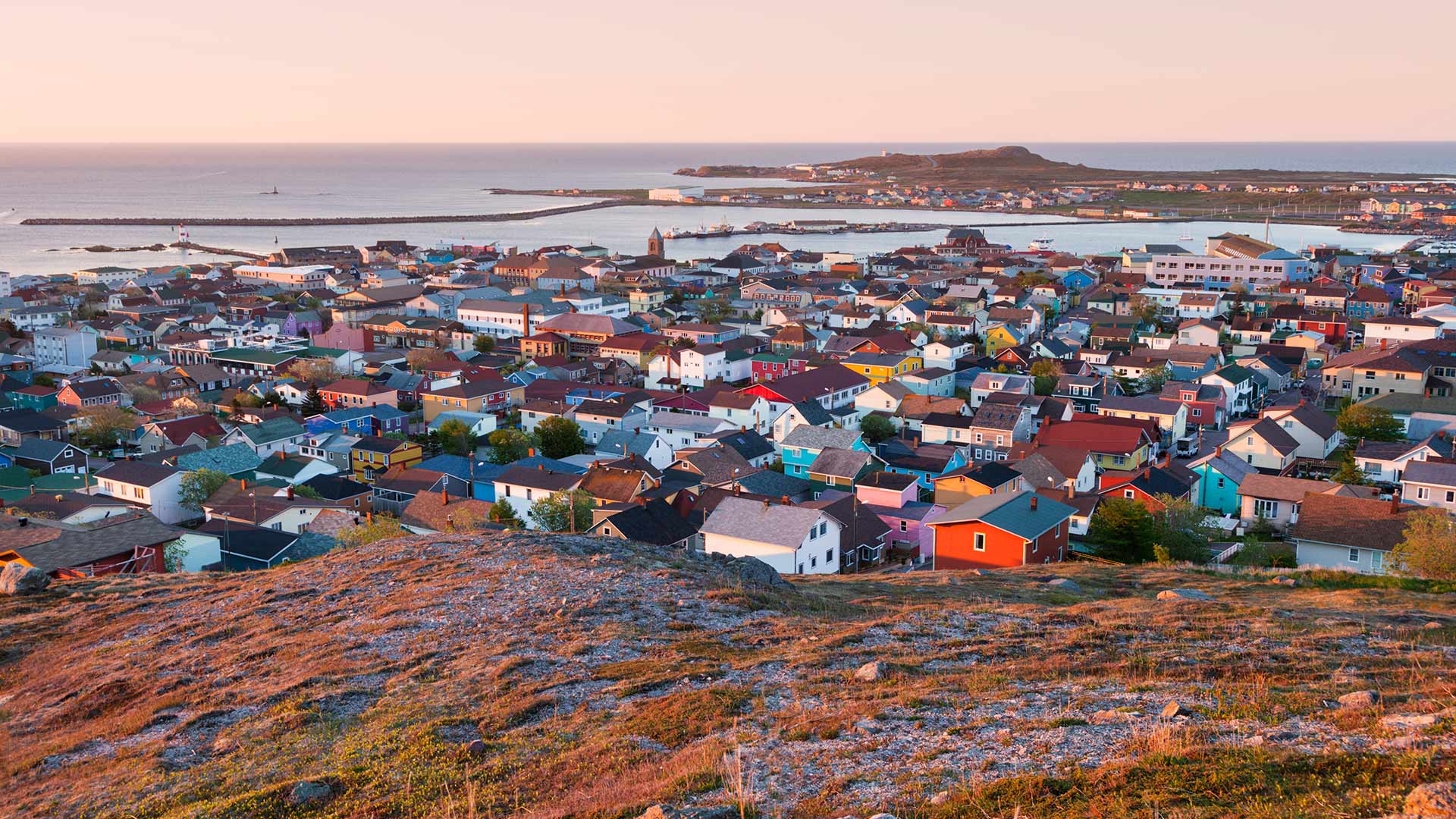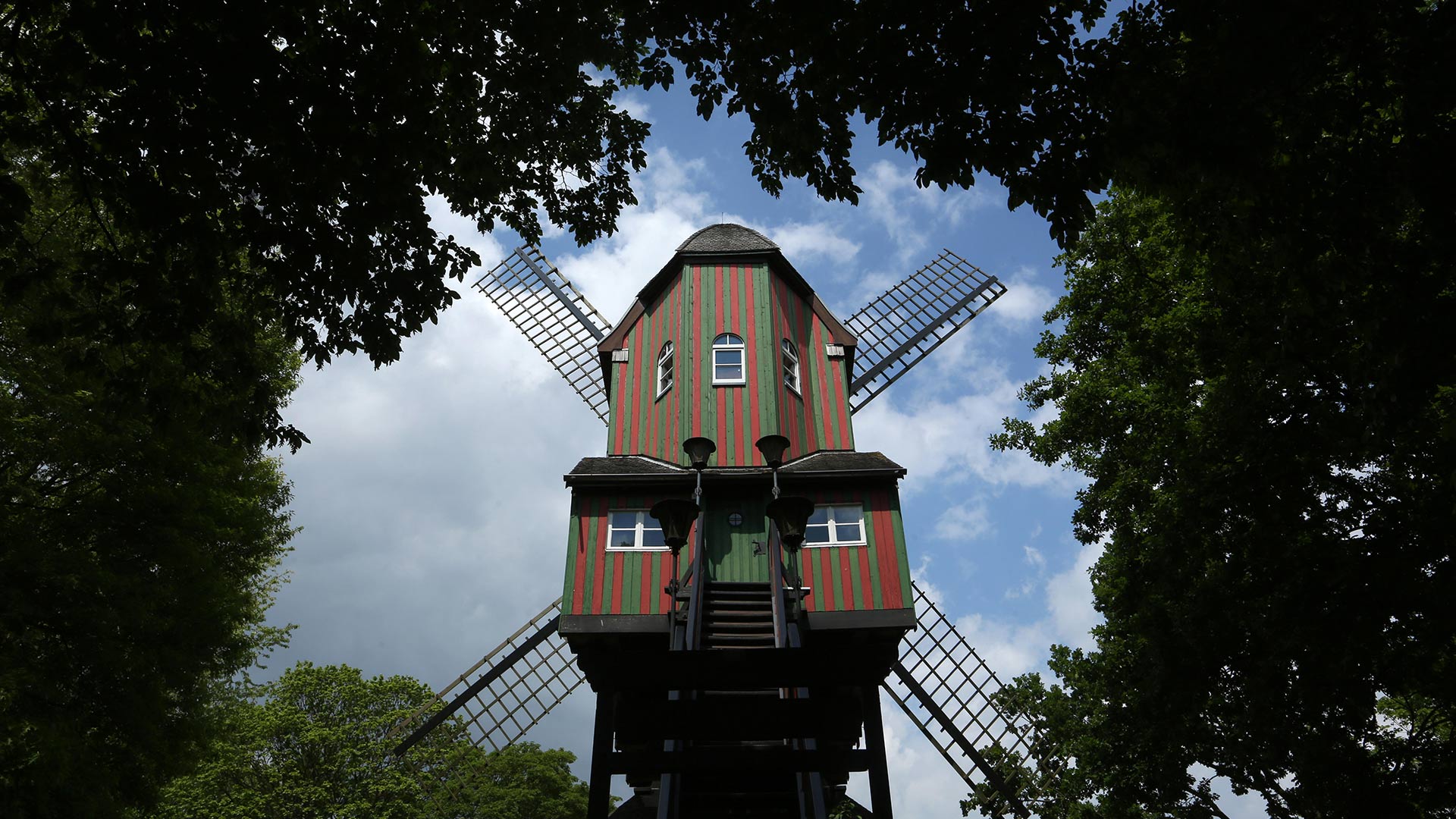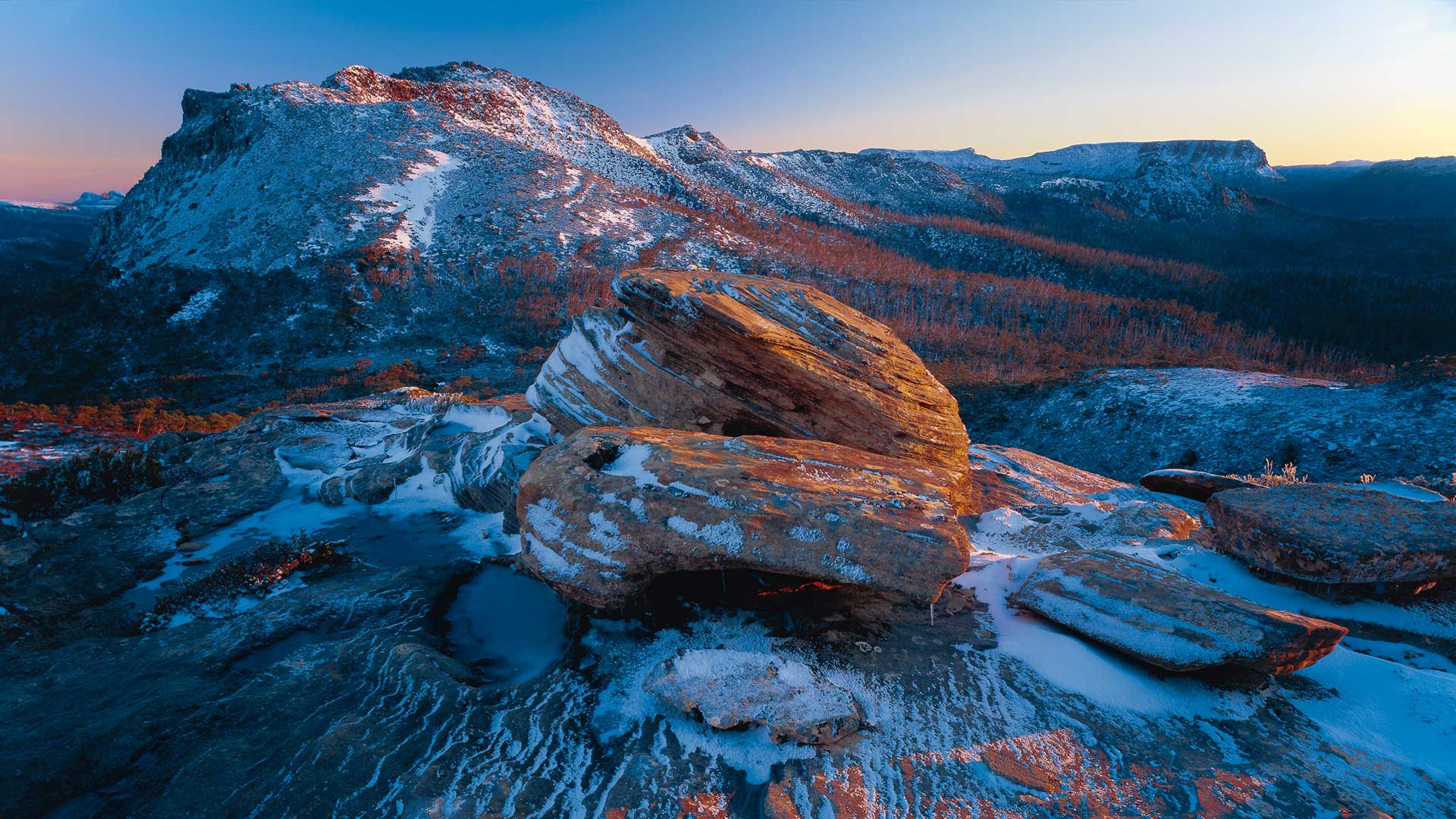日出时分的圣皮埃尔全景,加拿大圣皮埃尔和密克隆 (© Henryk Sadura/Getty Images)
科罗拉多斯普林斯的上帝公园,科罗拉多州 Garden of the Gods Park in Colorado Springs, Colorado (© lightphoto/iStock/Getty Images)
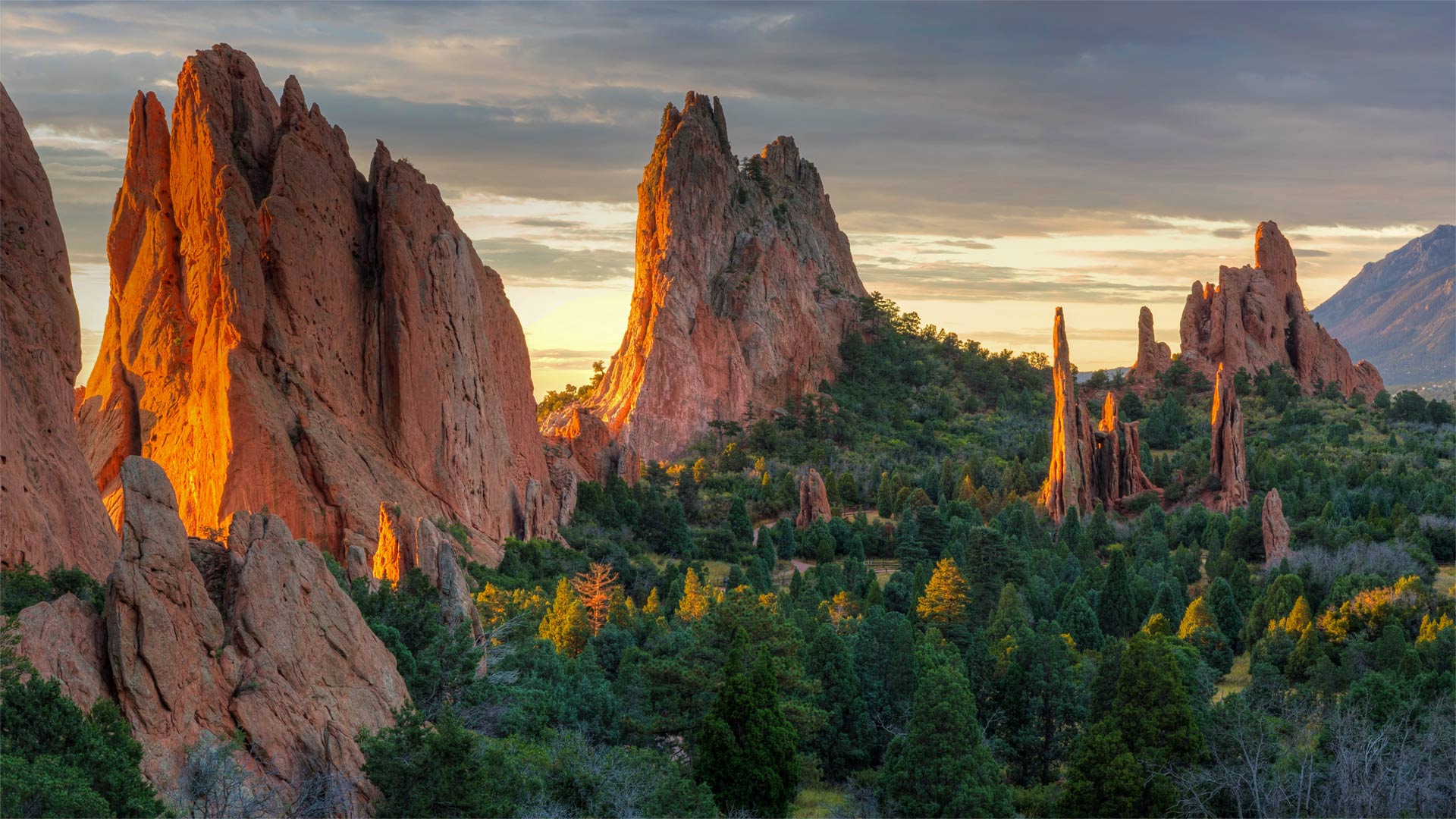
科罗拉多斯普林斯的上帝公园,科罗拉多州 Garden of the Gods Park in Colorado Springs, Colorado (© lightphoto/iStock/Getty Images)
A place fit for the gods
Perhaps it was inevitable that the European settlers who established Colorado Springs decided to name this park the Garden of the Gods—the creation myth of the native Ute people cites this location as the spot where all life began. Today, it's a popular public park and National Natural Landmark. The Garden of the Gods is on the western edge of the city—an easy way for locals and visitors alike to get a heaping dose of nature without having to travel far from civilization. If you stroll past any of the rock formations here, you're likely to see a climber scaling the red and pink sandstone fins that give the park its distinct look.
Sheep flock in the Gobi Desert © Patrick Baz/Getty Images
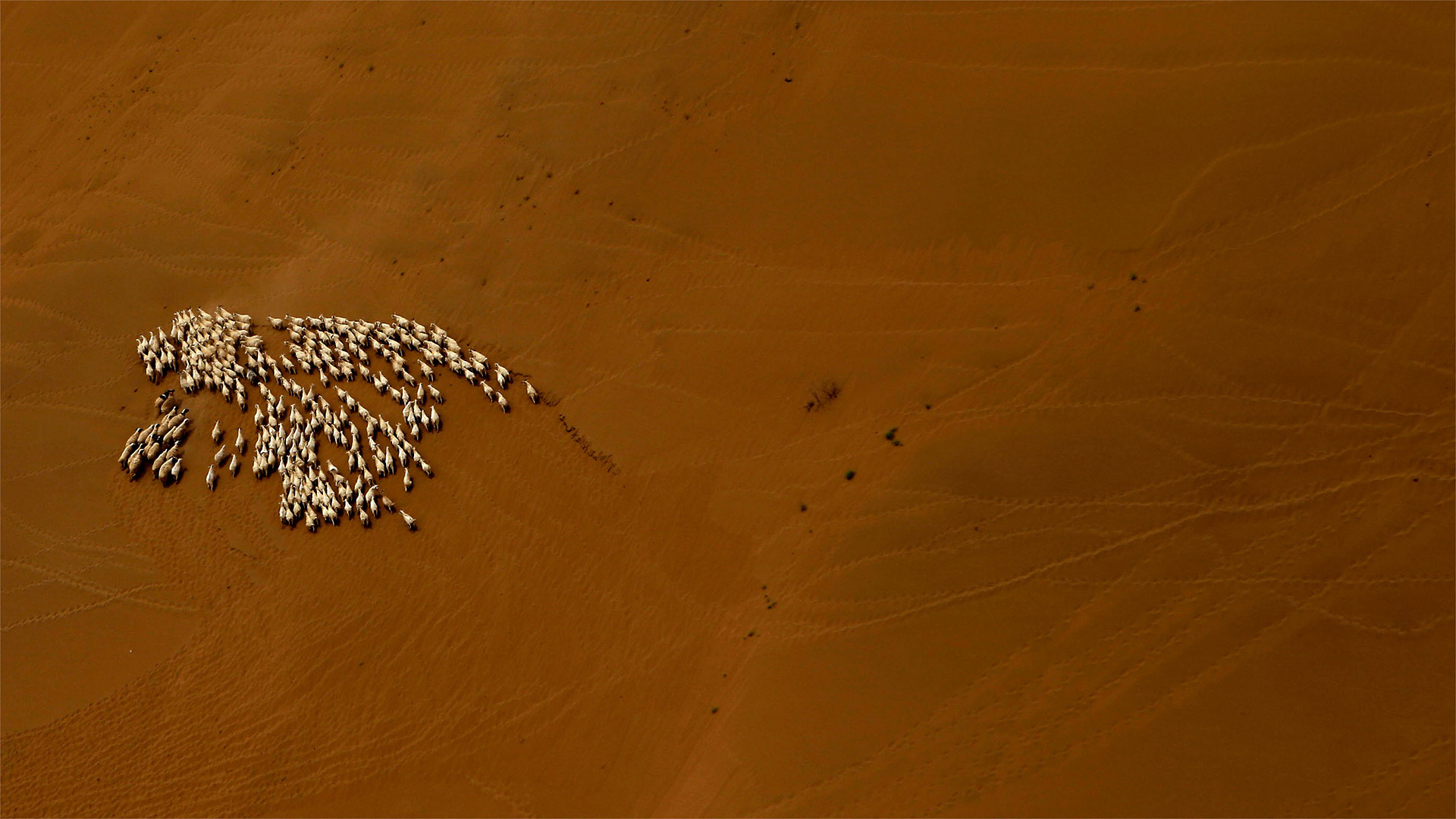
Sheep flock in the Gobi Desert © Patrick Baz/Getty Images
Nomads of the Gobi
The Gobi Desert stretches across 500,000 square miles, covering parts of northern China and Mongolia. Due to the Gobi's high elevation and high latitude, it's a cold desert. And while we tend to think of deserts as endless sand dunes, most of the Gobi's topography is exposed rock.
Despite these harsh conditions, the Gobi is teeming with life—some of it human. Nearly one third of the population in the Gobi Desert leads a pastoral nomadic life. Small communities of people drive their livestock herds—like the sheep seen in our photo today—across the landscape in search of fresh grazing territory. Both herd and herders rarely settle anywhere for long.
Narrenmuehle(愚人磨坊风车),德国Dülken (© dpa picture alliance/Alamy)
The Ernest Hemingway Home and Museum in Key West, for Hemingway Days © Werner Bertsch/eStock Photo
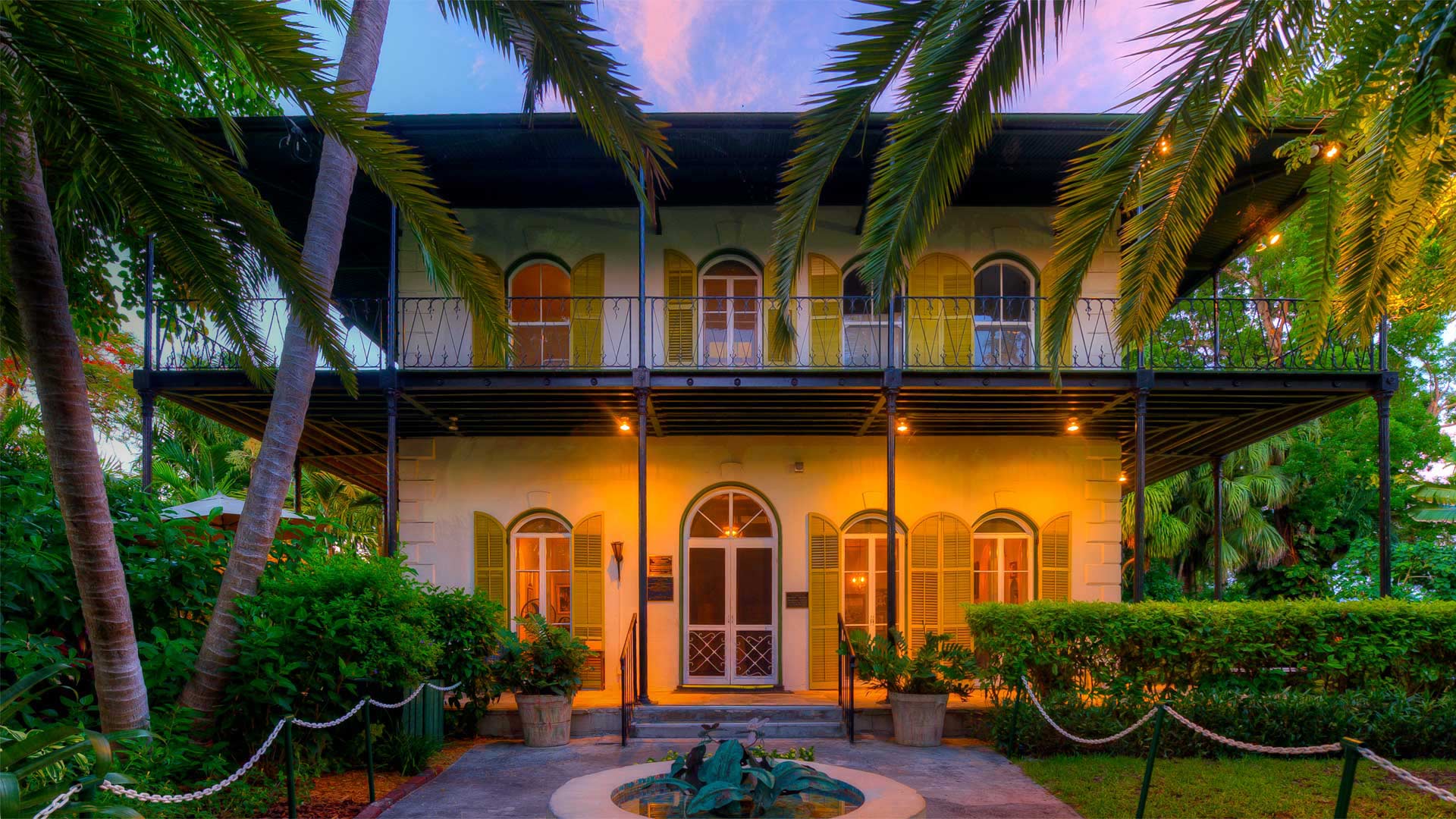
The Ernest Hemingway Home and Museum in Key West, for Hemingway Days © Werner Bertsch/eStock Photo
Hemingway's Keys
We're in Key West for Hemingway Days, the annual celebration of beloved local hero and author, Ernest Hemingway. The Nobel Prize winner was also an adventurer and outdoorsman who enjoyed fishing and drinking here—in addition to working on several books including ‘To Have and Have Not,' which takes place in the coastal town. And no trip to Key West today is complete without visiting the Spanish Colonial that he called home. Built in 1851, Hemingway lived here in the 1930s. Though the house was in disrepair when he and his second wife, Pauline, took ownership, the two restored the home and even installed a swimming pool—at the time the only in-ground pool in 100 miles. The house is now a National Historic Landmark and museum.
富士山和双岩,日本松崎 Mount Fuji and twin rocks (Ushitukiiwa) in Matsuzaki, Japan (© Tommy Tsutsui/Getty Images)
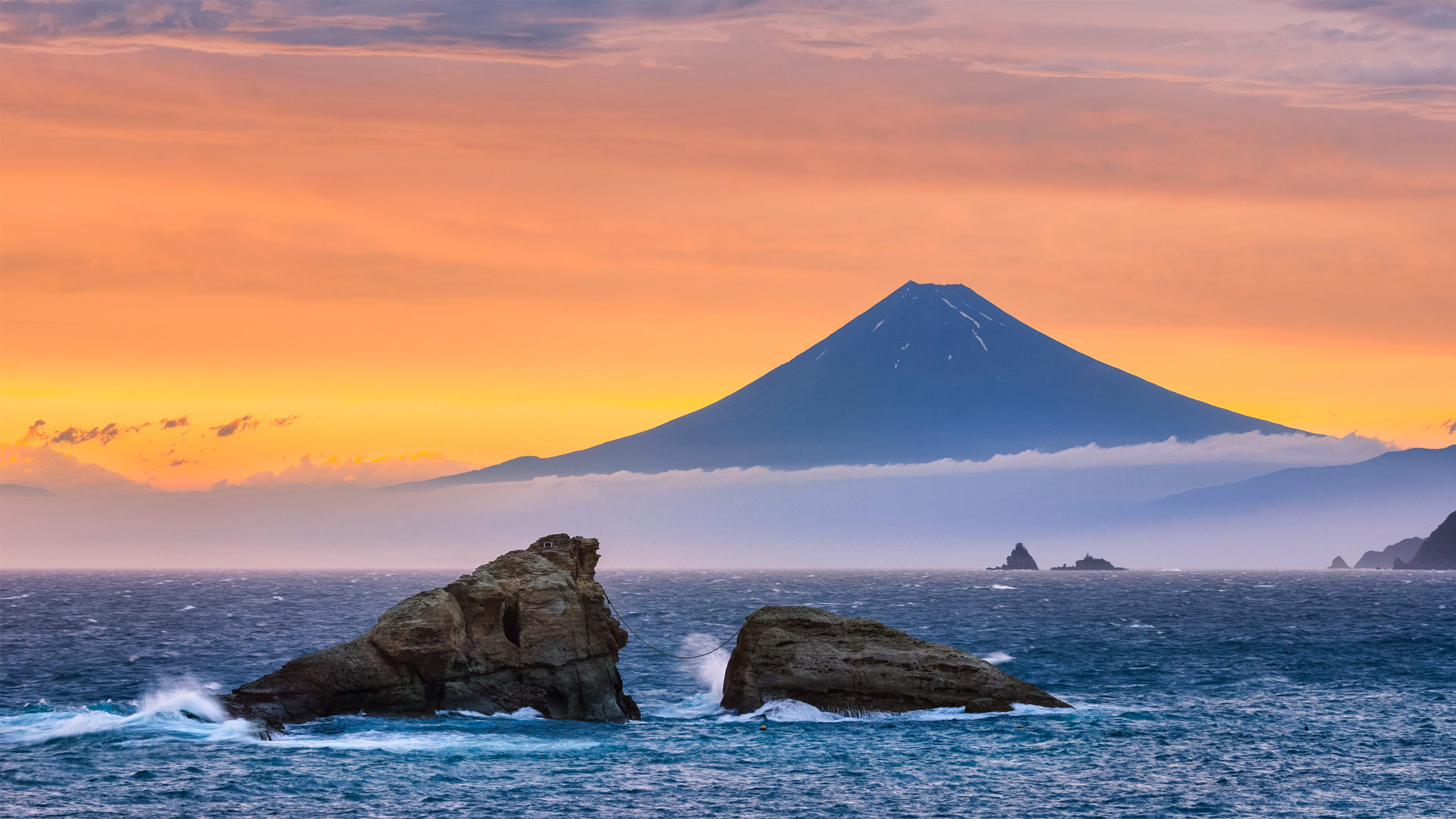
富士山和双岩,日本松崎 Mount Fuji and twin rocks (Ushitukiiwa) in Matsuzaki, Japan (© Tommy Tsutsui/Getty Images)
Marine Day in Japan
In Japan, the third Monday in July is Marine Day (also known as Ocean Day), a day to show appreciation for the seas and oceans, particularly as an island nation. The modern holiday also serves as an official start of summer in Japan, and many folks hit the beach to celebrate the end of tsuyu, the rainy season. The holiday started as Marine Memorial Day in 1941 to mark the anniversary of the return of the Meji Emperor, but it wasn't observed as a national holiday until 1996. Some also mark Marine Day with beach cleanups and other environmentally friendly activities. In Okinawa, people throw EM (effective microorganism) mudballs into the sea—these contain bacteria and yeast targeted at eliminating sludge and slime., Other areas host beach cleanups and aquariums host special Marine Day events.
The National Museum of the American Indian in Washington, DC © Cvandyke/Shutterstock
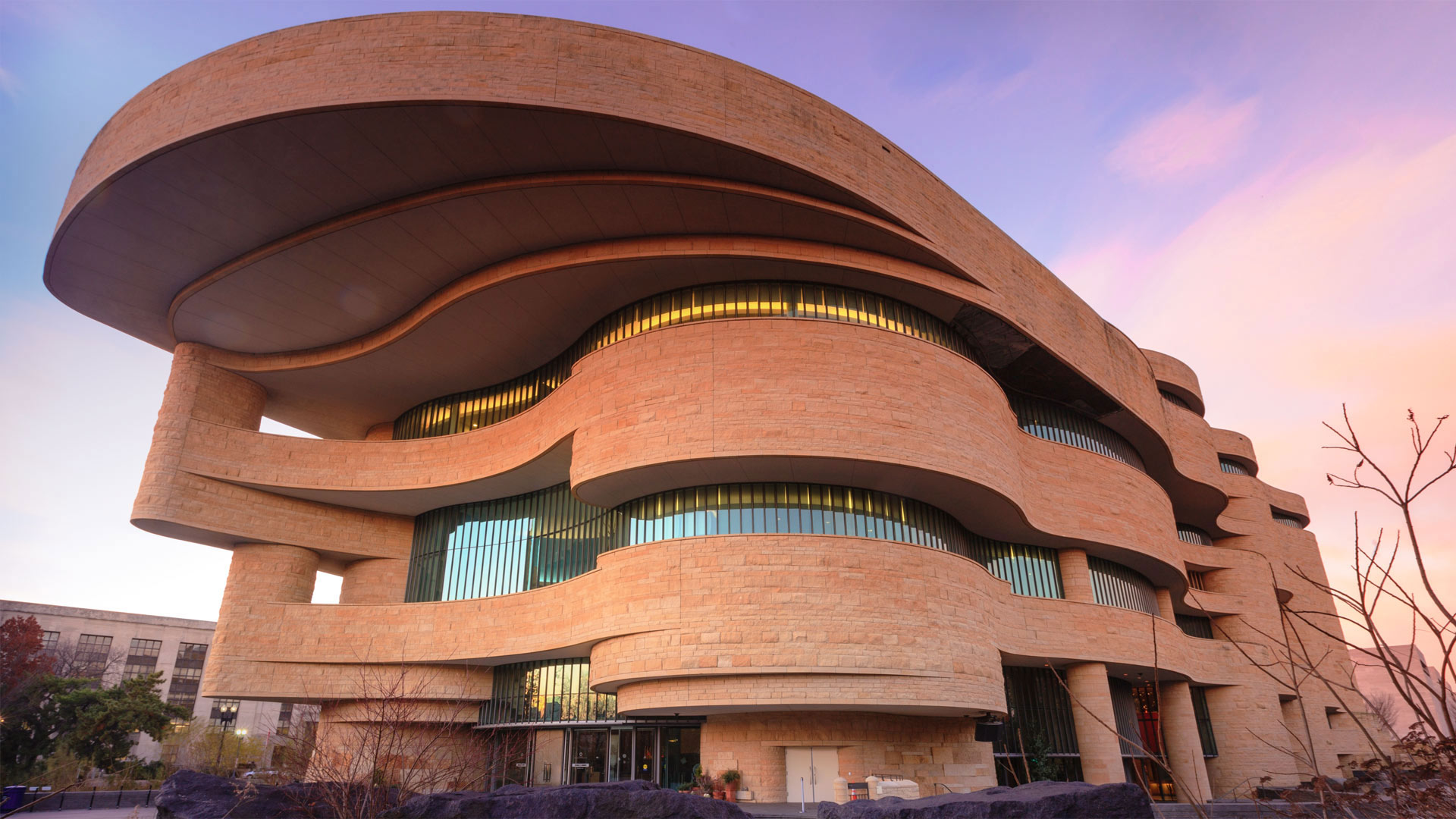
The National Museum of the American Indian in Washington, DC © Cvandyke/Shutterstock
DC is the place to be
The building in our photo today is the National Museum of the American Indian (NMAI) in Washington DC. It's part of the large network of the Smithsonian Institution, and has branches in New York and Maryland. All three share one of the world's largest collection of Western Hemisphere Native artifacts, ‘from the Arctic Circle to Tierra del Fuego.' Architect Douglas Cardinal drew on his Blackfoot cultural history to create the soft, curved lines of the building in the nation's capital. It's meant to evoke limestone cliffs, with rock walls smoothed by the elements. The landscape around the building simulates a wetland environment.
Sailors begin their journey from Chicago to Mackinac Island, Michigan during the Race to Mackinac © Karen I. Hirsch/Alamy
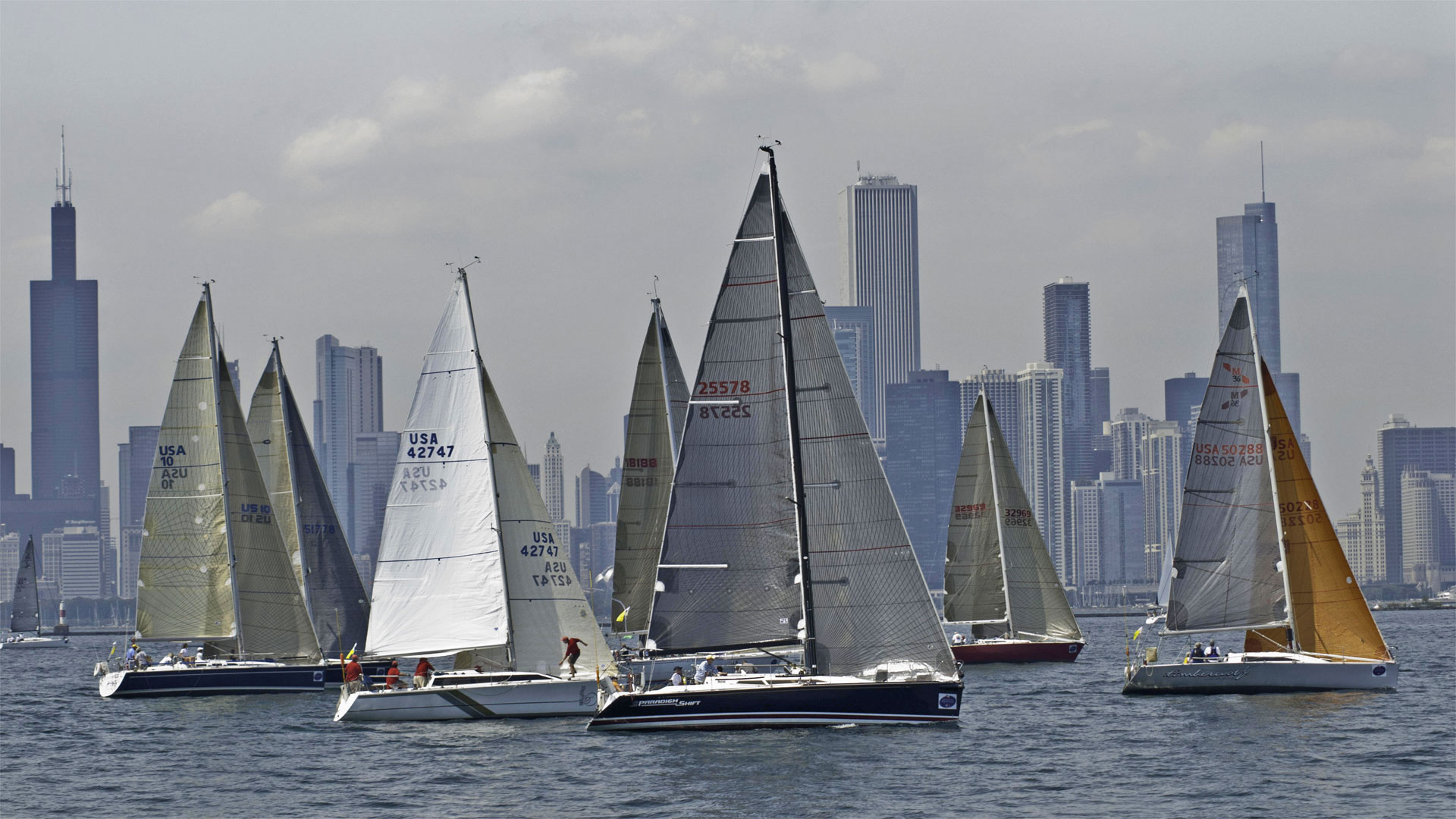
Sailors begin their journey from Chicago to Mackinac Island, Michigan during the Race to Mackinac © Karen I. Hirsch/Alamy
Batten down the hatches
The athletes on these boats are jockeying for position at the start of the Chicago Yacht Club Race to Mackinac (pronounced ‘Mack-i-naw'). The ‘Mac,' at 333 miles long, is the world's oldest and longest annual freshwater boat race. It's an amateur event, but make no mistake, these sailors know their stuff. Many go on to race in the America's Cup. This year's race is held today, and the boats set sail, smallest to largest, just off Chicago's Navy Pier passing by the city skyline as we see in our image. When crews pass under the span of the mighty Mackinac Bridge—connecting the Lower Peninsula to the Upper Peninsula—Lake Michigan becomes Lake Huron, and the island appears.
The official finish line is Mackinac Island's Yacht Club, but many say the race ends at the Pink Pony Patio Bar, where an armada of sailors gather to boast and toast each other. It's about then that locals prepare for the merrymaking by locking up their bikes. On Mackinac Island, bicycles are a hot commodity because motorized vehicles are outlawed (even police pedal around). The few motorized vehicles on Mackinac are for emergency use, such as ambulances and firetrucks.
摇篮山-圣克莱尔湖国家公园 (© Rob Blakers/Getty Images)
加利福尼亚州雷斯岬国家海岸上的柏树隧道 The cypress tunnel at Point Reyes National Seashore in California (© Rachid Dahnoun/Tandem Stills + Motion)
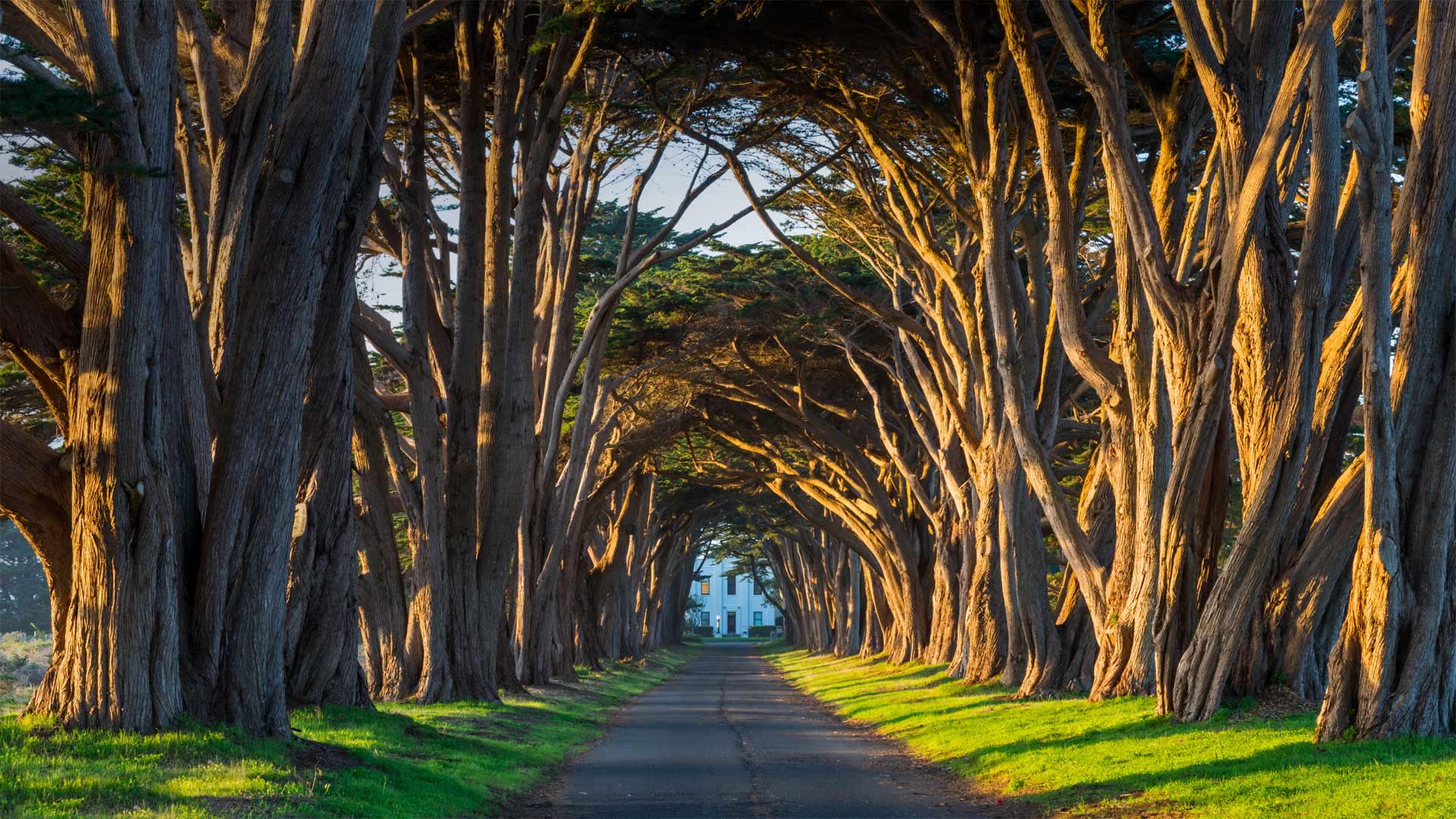
加利福尼亚州雷斯岬国家海岸上的柏树隧道 The cypress tunnel at Point Reyes National Seashore in California (© Rachid Dahnoun/Tandem Stills + Motion)
The ‘Night of Nights'
This is the cypress tunnel at Point Reyes National Seashore, a nature preserve on the California coast north of San Francisco. The tunnel leads to KPH, a ship-to-shore radio station that once broadcast and received messages with marine craft in the Pacific. KPH stopped operations in 1997, as more sophisticated radio equipment and satellite communications made radio stations like it obsolete. Now it's one of the unusual features of Point Reyes, open to visitors interested in a glimpse of the past.
Tonight, the radio station will be full of Morse code and maritime radio enthusiasts, celebrating the anniversary of the ‘Night of Nights.' It was on July 12, 1999 that nearby station KFS sent what is thought to be the last commercial transmission of Morse code in the United States.
